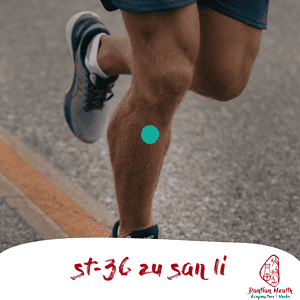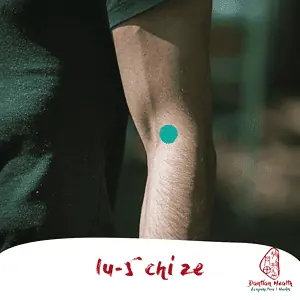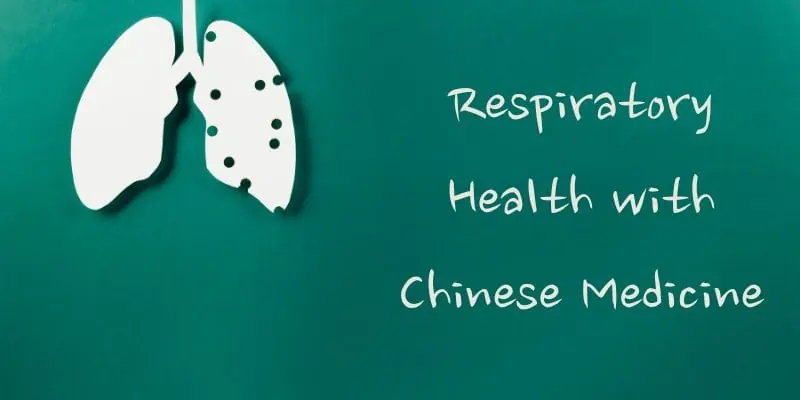Asthma is a chronic respiratory disorder that affects millions of people worldwide. It can significantly impact a person’s quality of life, causing shortness of breath, wheezing, chronic cough and chest tightness. While there is no cure for asthma, there are treatment options available that can help manage symptoms and improve overall respiratory health.
Effect on lifestyle for individuals with asthma
Asthma can have a significant impact on a person’s lifestyle, causing them to avoid physical activity, social events, and other daily activities. It can also lead to missed school or workdays, hospitalisations, and emergency room visits. This chronic disease can cause anxiety, depression, and other emotional disturbances, making it essential to manage symptoms effectively.
Prevalence of Asthma in Australia
According to the Australian Institute of Health and Welfare, there are approximately 2.7 million people with asthma, making it one of the most common conditions affecting Australians. It is more prevalent in children, with 1 in 9 children having asthma, compared to 1 in 12 adults.
Risk Factors for Asthma
Several risk factors increase the likelihood of developing chronic asthma, including genetics, environmental factors, and lifestyle choices. Exposure to pollution, tobacco smoke, and other irritants can trigger allergic asthma symptoms, as can immune responses such as in respiratory infections and allergic reactions such as allergic rhinitis (hayfever). The presence of other respiratory issues or chest infections can also be a contributing factor to the symptoms of asthma.
In Melbourne in recent years we have seen the occurence of “thunderstorm asthma events” where a combination of climate factors and grass pollen have triggered widespread acute asthma attacks, especially affecting allergic rhinitis sufferers.
What causes Asthma
When asthma is triggered, muscles around your airways tighten and there is more mucus and inflammation leading to a narrowing of the airways, making it difficult to breathe.
While the exact cause of asthma is unknown, several factors can trigger or worsen symptoms, including exposure to allergens, exercise, cold air, and stress. Emotional disturbances such as grief have also been associated with attacks of symptoms of asthma.
For additional information on possible asthma triggers, visit the website of the National Asthma Council.
What are the common symptoms of asthma?

Common asthma symptoms can occur multiple times per week and. include:
- Shortness of breath at rest
- Wheezing when breathing out
- Feeling tightness in the chest or throat
- Decreased energy and tiredness during the day
- Being unable to speak complete phrases due to shortness of breath.
Cough symptoms alone doesn’t always equal asthma. Look out for other symptoms like coughing at night, during physical activity, or in cool weather. Asthma can have mild or severe symptoms that occur periodically or constantly.
What is the most successful treatment for asthma?
There is no known cure-all treatment of asthma, however, taking preventative measures can alleviate symptoms and enhance respiratory well-being. Some ways to help patients with asthma achieve better outcomes on asthma control include avoiding certain triggers like:
- Tobacco smoke
- Pollution
- Allergens including dust mites
- Maintaining a healthy weight
- Exercising regularly
- Managing stress
- Regular treatment with Traditional Chinese Medicine to enhance the flow of energy in your Lungs to manage the occurrence of symptoms of chronic asthma
How can I naturally heal asthma?
There are several asthma treatment options available that can be used as complementary therapy to allopathic medicines such as inhalers (both preventers and those used for relief from symptoms) and tablets.
These may include lifestyle changes and alternative therapies such as steam inhalation or acupuncture treatment and Traditional Chinese Medicine.
Traditional Chinese Medicine categorizes asthma as a lung disorder known as “xiao chuan” or “wheezing”. The principles of TCM propose that imbalances in the lung and spleen meridians in the human body can cause this condition. Asthma symptoms can can then be triggered by pathogenic factors such as cold or dampness which affects these organs.
In Traditional Chinese Medicine, the lungs play a crucial role in regulating the respiratory system and also have immune and protective functions. When there is a deficiency or blockage in lung energy, it can affect the body’s ability to regulate respiration, resulting in symptoms such as wheezing, shortness of breath, and asthma.
TCM treatments for asthma use a holistic approach to support the smooth flow of Lung Qi, including acupuncture, herbal remedies, dietary changes, and lifestyle modifications. Herbal remedies can regulate lung function, reduce inflammation, and support the immune system. Acupuncture improves energy flow and targets specific symptoms like wheezing or shortness of breath.
Both Western medicine and TCM have different approaches to treating asthma. Some asthma patients may benefit from complementary treatment options provided by TCM. It is important to work with a qualified healthcare professional such as an AHPRA registered Chinese Medicine practitioner to develop a personalised treatment plan based on syndrome differentiation that meets your individual needs and circumstances.
Is acupuncture for asthma effective?
There is some evidence to suggest that acupuncture sessions may be helpful in reducing symptoms of bronchial asthma. One systematic review and meta-analysis of randomised controlled trials found that acupoint herbal patching may be useful in improving lung function and reducing asthma symptoms (Lee et al., 2016). Another systematic review found that the effects of acupuncture may include reducing symptoms and improving the quality of life in children with asthma (Liu & Chien, 2015) when compared with sham acupuncture.
There is some scientific evidence from clinical trials that the effects of acupuncture include anti-inflammatory effects, regulation of the adaptive immune response, airway remodelling and regulation of HPA activity (Nurwati et al., 2020).
“Acupuncture can effectively protect lung function and prevent airway inflammation, thereby playing an important role as an adjunctive treatment modality for asthma patients. Furthermore, it is a cost-effective treatment with no serious adverse effects, when practised by an experienced and certified acupuncturist” (Zogopoulos et al., 2018)
Can Chinese medicine help with asthma?
Johannah et. al., (2016) conducted a systematic review of studies investigating herbal formulae of Traditional Chinese Medicine combined with pharmacotherapies, discovering reported outcomes of “improved lung function, asthma control, and exacerbations”. Curiously, despite these outcomes, they note there was no reported clear difference in terms of quality of life. This is supported by the meta-analysis by Song et. al. (2016) that determined that “Chinese herbal medicine auxiliary therapy appeared to be effective for treating childhood cough variant asthma”. Both studies highlight the need for better quality studies into the use of herbal therapies as a therapy for asthma to be conducted. Chen et. al. (2021) in a review found that “herbal medicine was superior to placebo and montelukast but not inhaled corticosteroids plus bronchodilator …. with a lower incidence of adverse events”
In all, clinical studies suggest that the outcome of using Chinese herbal medicine and acupuncture on asthma shows beneficial effects. As usual, most reviews conclude that better quality studies will help to clarify this position. Considering the general safety of acupuncture as a treatment approach, it can be considered as a complementary therapy that may be used alongside conventional treatments such as bronchodilators and steroids.
What are the best acupuncture points for asthma
Asthma sufferers often ask “can acupressure help asthma”? Applying pressure to acupuncture points that are used to support Lung function may be of benefit as both a preventative and a reactive intervention during an asthma attack to support the use of medications. Common points that may be used include :

Lung 7 (Lieque)
Lung 7 (Lieque) is an acupuncture point located on the outer side of the forearm near the wrist. It is used to treat a variety of conditions, including asthma and related respiratory problems. This point helps to regulate and strengthen the Lung meridian, which is responsible for controlling breathing in Chinese medicine. By stimulating this point, practitioners can help open up airways, reduce inflammation and improve overall lung function.

Pericardium 6 (Neiguan)
Pericardium 6 (Neiguan) is a pressure point located on the inner wrist, between the tendons of the two forearm muscles. It has been used for centuries in Traditional Chinese Medicine (TCM) to calm anxiety, such as arise during an asthma attack where symptoms such as difficulty breathing, wheezing, and chest tightness can feel overwhelming. It also helps to open the chest to facilitate breathing.

Stomach 36 (Zusanli)
Stomach 36 (Zusanli) is located four finger widths below the kneecap on the outside of the shinbone, this point is said to be a window into the body’s energies. Stimulation of this point can help bring about balance and harmony in both the physical body and the mind, helping to reduce inflammation in the lungs and improve breathing.

Lung 5 (Chize)
Lung 5 (Chize), is an acupuncture point located in the inside of the elbow crease, just outside the tendon of the biceps muscle. It is commonly used to treat asthma and other respiratory conditions.
These acupoints are most commonly used to support the body’s natural healing process, as well as to reduce inflammation and enhance respiratory function. Whilst it is important to seek professional advice from an experienced acupuncturist before attempting any self-treatment, these points are generally beneficial for those with asthma
Conclusion
Asthma is a chronic respiratory condition that can significantly impact a person’s quality of life. While there is no cure for asthma in adults or children, treatment options are available to support those affected by asthma with acupuncture and Traditional Chinese Medicine. These therapies have been shown to be useful in improving lung function, reducing asthma symptoms, and improving overall respiratory health.
If you are struggling with asthma, consider exploring these alternative therapies in conjunction with traditional medical treatment. At Dantian Health clinic in Melbourne, we provide acupuncture and Chinese medicine services to help manage asthma symptoms and improve overall respiratory health.
Dantian Health – Melbourne Acupuncture and Chinese Medicine Clinic
Reclaim your health and restore vitality with responsive, holistic healthcare
References
- Lee SH, Chang GT, Zhang X, Lee H. Acupoint Herbal Patching for Asthma: A Systematic Review and Meta-analysis of Randomized Controlled Trials. Medicine (Baltimore). 2016 Jan;95(2):e2439. (Page 77)
- Liu CF, Chien LW. Efficacy of acupuncture in children with asthma: a systematic review. Ital J Pediatr. 2015;41:48. (Page 77)
- Zogopoulos, Panagiotis & K, Sagris & V, Gkorgkolis & S, Kollias & A, Pankos & G, Vretakos & D, Rologis. (2018). Acupuncture treatment for patients with asthma. Medical and Clinical Archives. 2. 10.15761/MCA.1000136.
- Johannah L. Shergis PhD, Lei Wu MD, Anthony L. Zhang PhD, Xinfeng Guo PhD, Chuanjian Lu PhD & Charlie C. Xue PhD (2016): Herbal medicine for adults with asthma: a systematic review, Journal of Asthma, DOI: 10.3109/02770903.2015.1101473
- Ping Song, Lingfeng Zeng, Zhaohui Liang, Qi Wang, Aihua Ou, Clinical Efficacy and Safety of Chinese Herbal Medicine Auxiliary Therapy for Childhood Cough Variant Asthma: A Systematic Review and Meta-analysis of 20 Randomized Controlled Trials, Internal Medicine, 2016, Volume 55, Issue 16, Pages 2135-2143
- Y. B. Chen, J. L. Shergis, Z. H. Wu et al., “Herbal medicine for adult patients with cough variant asthma: a systematic review and meta-analysis,” Evidence-Based Complementary and Alternative Medicine, vol. 2021
- Ida Nurwati, Muthmainah Muthmainah, and Khairunnisa Nurul Huda.Acupuncture for Asthma: Its Potential Significance in Clinical Practice.Medical Acupuncture.Oct 2020.272-279. http://doi.org/10.1089/acu.2020.1443



